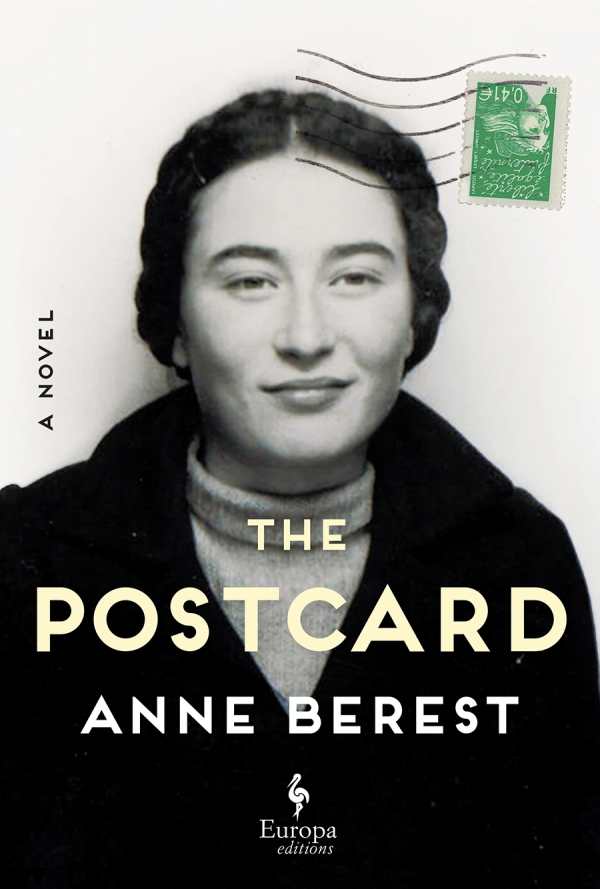The Postcard
Mysterious mail initiates a family’s search for their buried truths in Anne Berest’s elegiac novel The Postcard, which vivifies and honors the dead.
At her first Seder well into her adulthood, Berest is confronted by an aspiring rival who accuses her of being Jewish only when it is convenient to her. The charge is biting and absurd: when has being Jewish ever been convenient for her family? “I’m the child of a survivor,” Berest reflects, “Someone who has the same nightmares as her mother … someone whose body is the grave of those who never had a proper burial.”
Berest’s childhood, like her mother’s, was haunted and shaped by concealed recollections and whispered names. When a postcard containing four of these—those of her great grandparents and her mother’s uncle and aunt—arrives on their stoop, origins unknown, it leads Berest to enter her mother’s archives and ask questions she’s avoided before: what had her family endured during the war?
That tale—and the tales that preceded it—consumes these electrifying pages. Berest is aware that she’s relating a tragedy, but her narration rejects the impulse to let her family members’ stories rest at that. It says the Mourner’s Kaddish in narrative form, covering the Rabinovitches’ origins in Russia, where some early yearnings were disappointed; a move to an orange orchard in Palestine; and a shift back to France, despite prescient warnings from elders. It follows as the family’s fortunes change and evolve, conveying their dreams, acknowledging their talents, and revealing them as survivors at heart. Knowledge of what’s to come hangs over their stories, but their hopes and ambitions defy those shadows.
Acknowledging both the horrors of the Holocaust and the humanity of those it targeted, The Postcard is a commanding historical novel.
Reviewed by
Michelle Anne Schingler
Disclosure: This article is not an endorsement, but a review. The publisher of this book provided free copies of the book to have their book reviewed by a professional reviewer. No fee was paid by the publisher for this review. Foreword Reviews only recommends books that we love. Foreword Magazine, Inc. is disclosing this in accordance with the Federal Trade Commission’s 16 CFR, Part 255.


